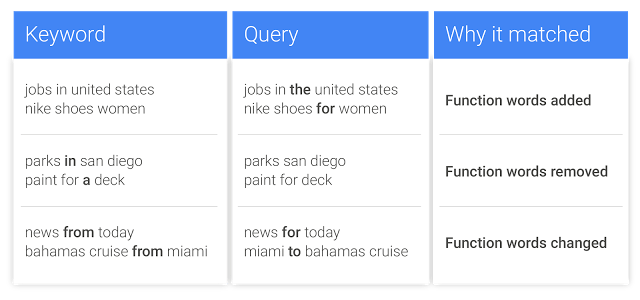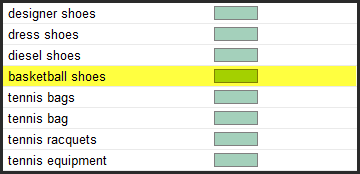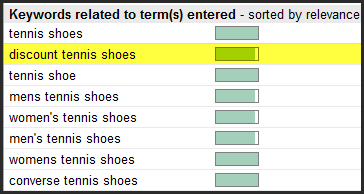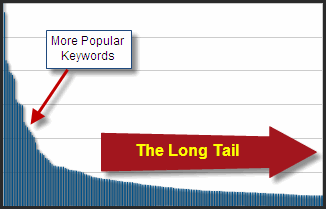Exact Match Keywords: Everything You Need to Know
Exact Match is a keyword match type available to advertisers using Google Ads and Bing Ads. Exact match keywords allow you to reach prospects searching only for the specific keyword you’re bidding on or close variants of that keyword. Bidding on exact match keywords allows you to exercise tight control over your advertising budget, giving you a better ROI on your ad investment.
In this tutorial, you’ll learn:
- How Exact Match keywords works
- Why Exact Match keywords are important to your Google Ads account
- Which Exact Match keyword strategies you should use when advertising on Google
But first…
What Is an Exact Match Keyword, Anyway?
Exact Match is the Google keyword match type that allows you to show your ad when a searcher types the exact word or phrase you are bidding on. An Exact Match keyword in Google Ads will only enter an auction in which the search query perfectly matches or is a close variant of your keyword.
Google explains Exact Match as:
With Exact Match, you can show your ad to customers who are searching for your exact keyword, or close variants of your exact keyword, exclusively. Of the four keyword matching options, Exact Match gives you the most control over who sees your ad, and can result in a higher clickthrough rate (CTR). With Exact Match, your ads may appear when the meaning of someone’s search exactly matches your keyword. When you use Exact Match, you might not receive as many impressions or clicks, but you’ll probably see a higher clickthrough rate (CTR). That’s because your ads can appear to people who are searching for terms that are almost exactly related to your product or service.
How Did Exact Match Keywords Change in 2017-2018?
Way back at the dawn of Paid Search, Exact Match keywords were just that: they only matched to search queries that exactly mirrored the keywords being bid on. While this gave advertisers tons of control, it forced them to create swollen keyword lists full of close variants.
As Google got smarter, they altered Exact Match keywords to account for close variants, including misspellings, singular forms, plural forms, acronyms, stemmings, abbreviations, and accents. This cut down on the need to include dozens of variants in a single ad group considerably.
In March 2017, Google changed the way Exact Match keywords work again, further expanding their definition of close variants to include semantically similar search queries.

If an advertiser is bidding on the Exact Match keyword [men’s dress shirt], in addition to serving an ad for the search query men’s dress shirt, it will also match out to semantically similar phrases, search queries like men dress shirt and dress shirt men’s.
In that example, the Exact Match keyword matches out to a search query that does not, in fact, match exactly. It’s a reordering of the same words, but not the same phrase.

There are a few other cases in which Exact Match keywords can be triggered by search queries that do not match the keyword exactly. These are centered around Function Words, prepositions (in, to), conjunctions (for, but), articles (a, the) and other words that often don’t impact the intent behind a query. Function words may be added, removed, or changed and still trigger an Exact Match keyword.
Per Google, this change is having quite an impact: advertisers are seeing up to a 3% increase in Exact Match clicks.
Google again changed the rules for exact match keywords in 2018; exact match keywords are now matching to “close variants that share the same meaning of your keywords,” including synonyms, paraphrases, and results with the same implied intent.
The Importance of Exact Match Keywords
Why are Exact Match keywords so important?
Because there is a central flaw with the more “expansive” matching options (Broad Match and Phrase Match): Broad and Phrase Match keywords will probably show your ad against queries you don’t want to advertise on.
Broad Match – This option (along with Broad Match Modified) will show your ads against searches that include misspellings, synonyms, related searches, and other relevant variations.
Phrase Match – This option will show your ads on searches that match a phrase, or are close variations of that phrase, with additional words before or after. Ads won’t show, however, if a word is added to the middle of the phrase, or if words in the phrase are reordered in any way.
Let’s look at some of the search queries that might trigger the Broad Match keyword “tennis shoes”:

Obviously, a LOT of these queries are useless for our tennis shoes offer. We aren’t selling basketball shoes. We aren’t selling designer shoes. Heck, we aren’t even selling tennis racquets! We’re selling tennis shoes, JUST tennis shoes, and as such, broadly-related search queries are a waste of our valuable advertising dollars.
What if we try Phrase Match?

… Not much better.
While the search queries our Phrase Match keyword “tennis shoes” match out to are much more relevant than what we saw with Broad Match, we. If we sell high-end, expensive tennis shoes we don’t want to advertise against “discount tennis shoes”; if we only sell certain brands or styles, we want to be able to account for that, too.
Enter Exact Match keywords.
So Exact Match Keywords Are Better than Phrase Match and Broad Match, Right?
Not so fast! When you’re advertising on Google, Exact Match has its problems too.
Returning to our tennis shoes example…
Only matching out to the search query “tennis shoes” is great. But what about “men’s tennis shoes”? We probably sell those. Better yet: what about “buy tennis shoes”? That searcher is actively looking for a pair of tennis shoes to buy. Their intent is clear. We want that prospect!
In truth, there’s probably no end to the list of high-intent search queries we may want to run our ads against. Identifying these queries and adding them as keywords is incredibly important because of a principal known as the long-tail of search.
Check out this graphic:

Basically, this is the idea that most of the traffic you receive through search is from users who have typed a longer query. Many of these long-tail keywords are full of intent, but their search volume is so low that Exact Match keywords probably won’t give you the opportunity to take advantage of them.
If you only use single-word Exact Match keywords, you’re missing out on a ton of valuable traffic!
What Kind of Keyword Strategy Should I Use?
No single keyword match type can carry a Google Ads account by itself.
- Broad & Phrase Match pull in too many useless queries
- Exact Match misses out on valuable long-tail keywords
What you need is a solution that captures all the variations you want while weeding out the costly stuff that doesn’t make sense, a suite of tools that allows you to:
Leverage Broad & Phrase Match to Uncover New Opportunities
Discover and bid on new variations of the keywords you’re bidding on. Record all these variations with Web analytics, bid on more specific keywords, and be more relevant by raising Quality Score and click-through rates.
Discover Negative Keyword Opportunities
The negative keyword matching option allows you to keep your ads from showing against various undesirable queries. This is a powerful weapon against the sort of irrelevant traffic discussed above.
By using multiple match types, adding negative keywords, and identifying new, high-intent keywords, you can simultaneously reach the audience you want to be in front of and avoid spending money on clicks that don’t convert.
